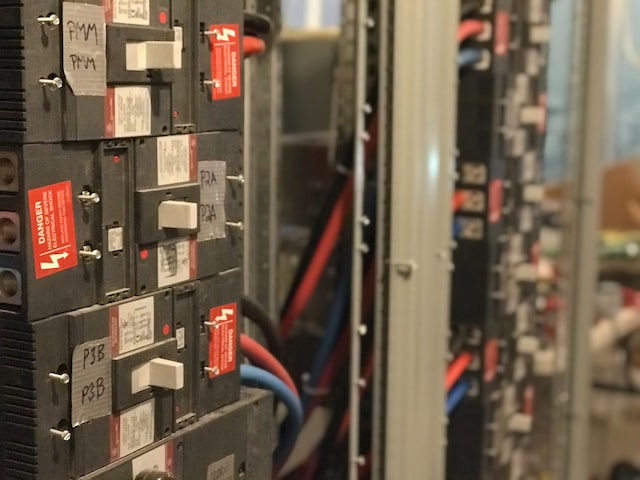A Quick Guide to Circuit Breakers
If you are experiencing this dilemma, check out this guide to learn more about what can cause a tripped breaker and how to remedy the situation.
Circuit Breakers - Frequently Asked Questions
What is a circuit breaker?
A circuit breaker is a critical safety feature in a home or business’s electrical system. The breaker controls and protects the electrical power and electrical equipment attached to it.
Why does a circuit breaker keep tripping?
When you draw more power than a circuit breaker can safely handle it causes an electrical circuit overload. If the breaker keeps tripping and is left unchecked, the overload can cause the circuit to overheat or damage your home or business’s electrical wiring. When the excess of the current load exceeds the capacity (rating) of the circuit breaker it will trip. As a result, the circuit breaker cut off the flow of electricity until you resolve the problem. Without this safety feature, a potential fire could take place.
What can cause the breaker to trip?
Although a tripped circuit breaker is an important safety mechanism, it can be an indication of a bigger problem, especially if your circuit breaker switch keeps tripping after you switch it back on (reset). There are many things that can cause the breaker to trip including a short circuit or ground fault.
- Electrical appliances can often be the culprit as to why your circuit breaker keeps tripping.
- Too many devices are connected to the same receptacle.
- The load you are trying to connect to the circuit exceeds the breaker rating.
- Fans are often a reason for the breaker tripping, it may be due to a short circuit. The motor might be seized.
- Heating devices are also common devices that cause breakers to trip.
If you have an older home your circuit breakers are dated or your electrical panel isn’t up to code, your breakers will likely need to be replaced or the panel itself.
How to identify a short circuit?
If you observe a brown or black discoloration on a cable, fan, receptacle, or light fixture or near the circuit breaker in the Panel, the problem may be a short circuit. Shorts usually leave a burning odour around the device itself or the breaker panel box. This should be easy to detect. However, if you do experience this, call your electrician to check for bad wiring or loose connections.
What is a ground fault surge?
Shorts and ground faults are similar, though generally limited to a single outlet. They can occur when someone accidentally touches a hot wire, allowing the electricity to travel through their feet to the ground. When this happens, your circuit breaker will trip. We recommend having surge protectors to help protect your home or business’s computer systems and electronic devices.
A blown breaker can be frustrating and inconvenient. You can reset it, but if your breaker keeps stripping you may need help finding the cause and fixing the problem.
At Central Electrical Systems we consider the safety of your family and home or office space to be paramount. Stay safe and always hire a qualified electrician for any electrical need. Our certified electricians service commercial, industrial and residential clients throughout the Fraser Valley and the Vancouver Lower Mainland. Our electrical work is guaranteed!
Give us a call!

